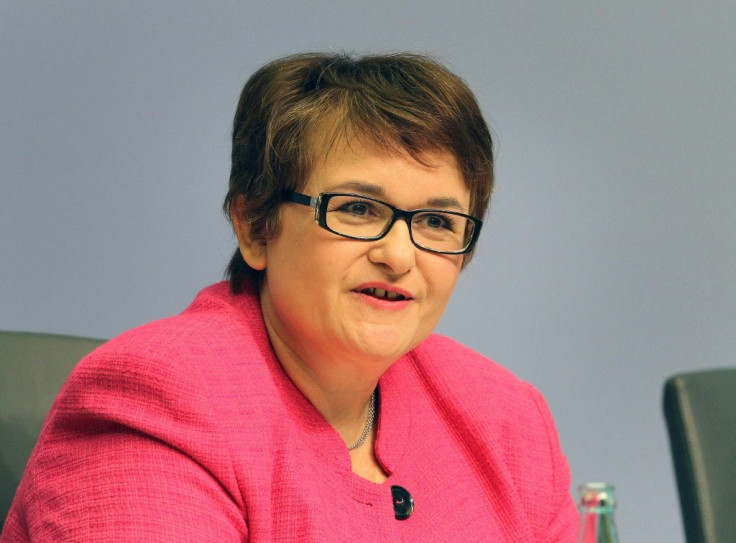ECB Board Member's Departure Highlights Deep Split Over Stimulus

The European Central Bank lost its third German board member to resignation over policy differences in a decade Wednesday, further drawing back the veil on controversy at the top and opening a new race for the prestigious post.
Sabine Lautenschlaeger, who had also served as deputy head of the ECB's banking supervision arm, will step down effective October 31, the Frankfurt institution said in a statement.
A central bank source told AFP that the career banking supervisor and central banker "had been thinking about (resignation) for some time, and the decisions on September 12 were the trigger" for the move.
Faced with falling growth and inflation projections for the 19-nation eurozone, policymakers agreed to further lower a key interest rate into negative territory and reactivate mass purchases of government and corporate bonds.
New bond-buying has torn open a longstanding divide between policy "hawks" who are sceptical of the ECB's easy-money policies and supportive "doves" that side with the interventions' champion, departing president Mario Draghi.
Slamming Draghi for "overshooting the mark", Bundesbank (German central bank) chief Jens Weidmann told Bild daily after the meeting that "such a far-reaching package was not necessary".
There had been a rare series of public statements ahead of the meeting from both opponents on the council of further monetary easing and those on the fence.
Sources told AFP around 10 of the 25 members of the governing council opposed the new 20-billion-euro ($22 billion) per month purchase programme.
It was becoming "an almost typical German tradition" to resign from the ECB over policy differences, said ING bank economist Carsten Brzeski.
Former executive board member Juergen Stark and Bundesbank chief Axel Weber both stepped down in 2011.
"The fact that the opposition against the last policy decision has become very vocal even after the decision shows how fragile the ECB currently is," Brzeski added.
New broom?
With Draghi set to depart on October 31, he will be replaced the following day by former International Monetary Fund (IMF) boss Christine Lagarde.
Some hope Lagarde, who has also served as French finance minister and was a successful corporate lawyer, could help heal differences on the governing council.
But she told the European Parliament this month she would stick to the "same sound principles" as Draghi, seeing "highly accommodative policy warranted for an extended period of time".
Lautenschlaeger's resignation "can only mean that she sees no chance in the change at the top of the ECB to end the bond purchases quickly," commented economist Uwe Burkert of LBBW bank.
Bond purchases were originally introduced by the ECB -- long after other major central banks worldwide -- to combat the threat of deflation, a harmful downward spiral of prices and activity, in 2015.
The governing council brought them to an end in December 2018, when the threat appeared dispelled.
Now, while staff projections show low but positive inflation for the coming years, trade conflicts and other threats are slowing the eurozone economy and holding the ECB off its goal of price growth just below two percent.
Governments on the hook
Draghi said in June it would be "resignation, acceptance of defeat" not to react to such external threats with monetary policy changes.
But he has also repeatedly urged governments with "fiscal space" in their budgets to spend more, stimulating the eurozone economy and stoking demand in ways the central bank cannot.
Germany especially has been reluctant to take such steps.
Pictet Wealth Management strategist Frederik Ducrozet said Berlin should name a candidate to replace Lautenschlaeger who "will succeed in explaining the ECB's policies to the German public, including the reasons why we got there" and how national governments can help bring them to an end.
But other governments could yet throw their hats in the ring, after nominating a single candidate -- Italian Fabio Panetta -- to replace another departing board member, France's Benoit Coeure.
© Copyright AFP 2024. All rights reserved.





















